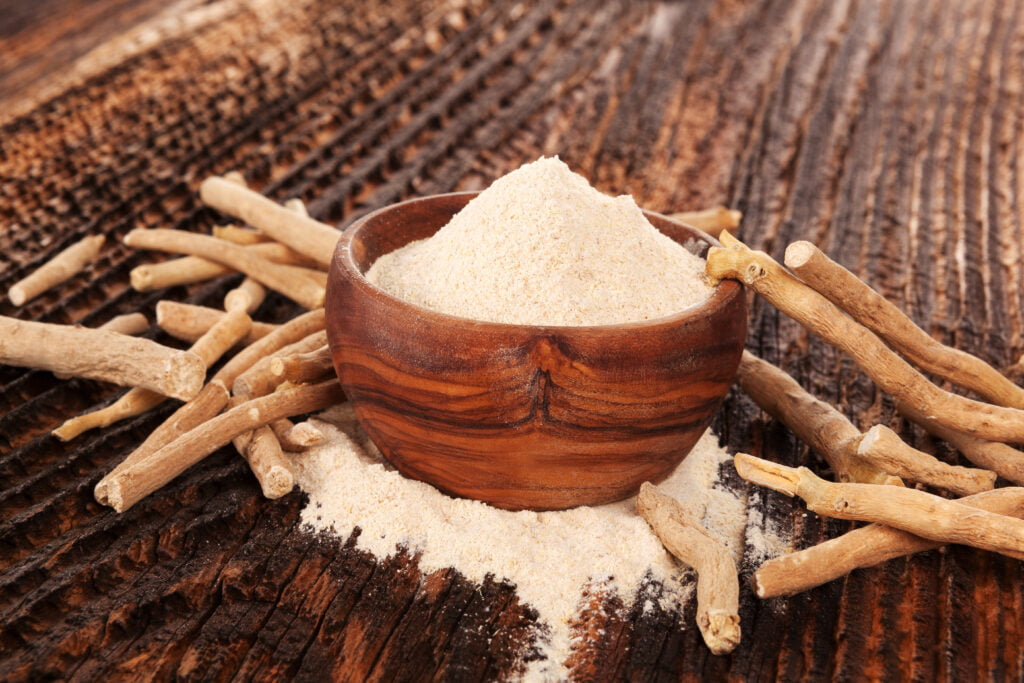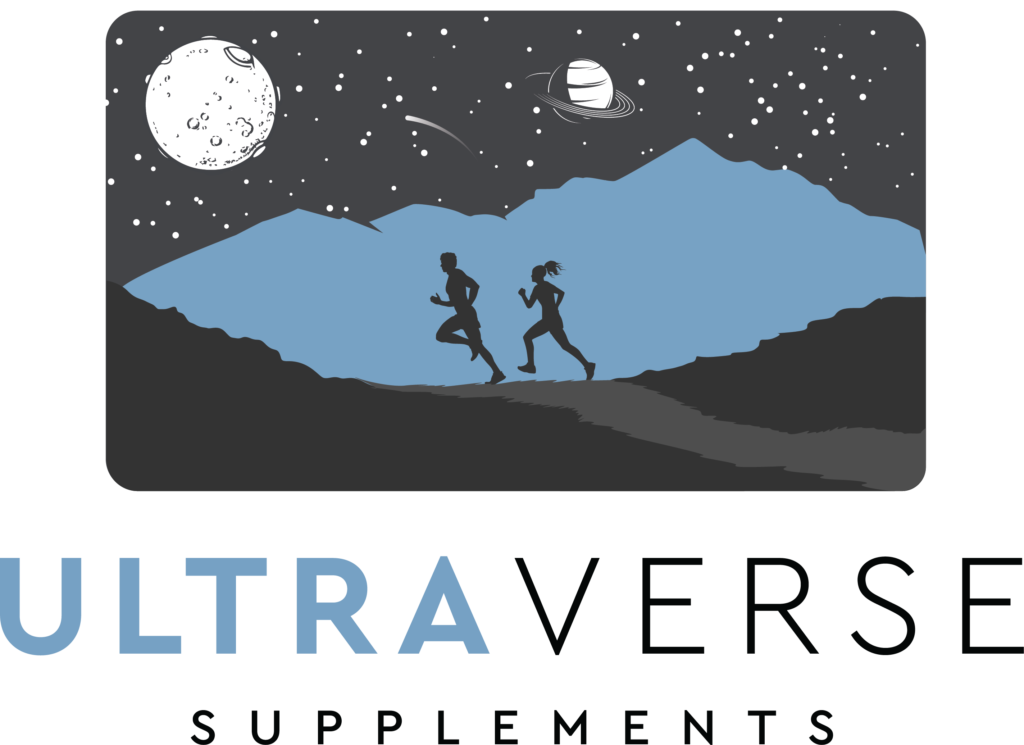Uncategorized
KSM-66 Ashwagandha for Endurance Athletes: 10 Powerful Benefits
What is Ashwagandha?
 Before we get into what KSM-66 is, we should probably talk about Ashwagandha. If you aren’t already aware, ashwagandha is an adaptogenic herb. An adaptogenic herb counteracts the harmful effects of stresses (physical, chemical, and biological). That is all just a fancy way of saying that it reduces stress and anxiety. The use of ashwagandha in Ayurvedic medicine can be traced back to 600 BC (Sing et a., 2011). It’s been around for a minute. Ayurveda practitioners use various parts of the plant, but the root extract is what you will find most commonly used in supplements. Fun fact: ashwagandha got its name because of the smell of its root. The Sanskrit word ashva means “horse,” and ghanda means “smell.” It translates to horse smell.
Before we get into what KSM-66 is, we should probably talk about Ashwagandha. If you aren’t already aware, ashwagandha is an adaptogenic herb. An adaptogenic herb counteracts the harmful effects of stresses (physical, chemical, and biological). That is all just a fancy way of saying that it reduces stress and anxiety. The use of ashwagandha in Ayurvedic medicine can be traced back to 600 BC (Sing et a., 2011). It’s been around for a minute. Ayurveda practitioners use various parts of the plant, but the root extract is what you will find most commonly used in supplements. Fun fact: ashwagandha got its name because of the smell of its root. The Sanskrit word ashva means “horse,” and ghanda means “smell.” It translates to horse smell.
What are the benefits?
If you prefer not to read all the research jargon, let me line out the benefits for you:
- Improves endurance (Choudhary et al., 2015)
- Increases energy (Mikolai et al., 2009)
- Improves muscle recovery and strength (Wankhede et al., 2015)
- Improves sleep quality (Sikandan et al., 2018)
- Decreases serum cortisol (Salve et al., 2019)
- Increases VO2 max (Shenoy et al., 2012)
- Increases testosterone in men (Choudhary et al., 2015)
- Reduces stress and improves the quality of life (Lopresti et al., 2019)
- Improved immunity (Mikolai et al., 2009)
- Anti-inflammatory (Sikandan et al., 2018)
For all my nerds out there that love reading research:
There has been much research done on the benefits of taking ashwagandha extract. In general, ashwagandha enhances muscle strength and endurance, promotes youthfulness, and improves overall health (Lopresti et al., 2019). Mikolai et al. (2009) saw increased immunity and improved energy in their study on ashwagandha supplementation. Ashwagandha is also clinically proven to increase muscle recovery rate (Wankhede et al., 2015). Choudhary et al. (2015) found that KSM-66 supplementation improved endurance. Another study observed anti-inflammatory results from ashwagandha supplementation (Sikandan et al., 2018).
Chandrasekhar et al. (2012) found that taking ashwagandha significantly decreased chronic stress levels, anxiety caused by stress, and decreased serum cortisol levels by up to 27.9%. If you have read Chase’s blog on ultra-endurance vs. conventional endurance, you will know the importance of that benefit. If not, let me spell it out for you (but you should read the blog): ultra-endurance athletes (ultrarunners, ironman triathletes, etc.) experience increased susceptibility to chronically elevated cortisol levels (Skoluda et al., 2012). Salve et al. (2019) also observed a decrease in serum cortisol levels. Chronically high cortisol can negatively impact overall health and performance. Keeping cortisol in check is so important, especially for ultrarunners and endurance athletes, that we have an entire blog devoted to discussing it.
Additionally, researchers found that ashwagandha can alleviate the comorbidities associated with increased stress and anxiety, such as fatigue and temporary cognitive impairment. Once again, I will refer you to Chase’s blog for more information on fatigue and cognitive impairment for endurance athletes. Another scientific study showed improved power output and improved VO2 max without increasing blood pressure (Sandhu et al., 2010). Shenoy et al. (2012) found similar results with increases in VO2 max. I probably don’t need to tell you this, but an increase in VO2 max is a good thing! A higher VO2 max means that your body can take in more oxygen and deliver it to your muscles, thereby helping you run faster for longer.
So, what is KSM-66?
Ixoreal’s KSM-66 ashwagandha is a trademarked extract with the highest concentration of any extracts available on the market today. It is also the most bioavailable, which means it is the most easily absorbed in the body. KSM-66 is a full-spectrum extract, meaning that it balances the various constituents found in the herb without too much of any individual constituent. Scientists posit that ashwagandha’s efficacy comes from the complex blend of active constituents. This brand of the extract is created without using any alcohol or chemical solvents, which preserves its potency. KSM-66 only uses the root of the ashwagandha plant. Although it would be cheaper to use leaves in their extract, they avoid this because the root has been scientifically shown to be superior for its adaptogenic benefits and internal ingestion.
KSM-66 is the most clinically studied ashwagandha on the market and evaluated in 22 human clinical trials. Here is a list of published clinical studies on KSM-66. It received more certifications than any other extract on the market. If you would like to read more on KSM-66, please check out their website. It has a TON of great information!
 Where can I get some?
Where can I get some?
Now that I have convinced you that KSM-66 is the best ashwagandha supplement on the market, I can also tell you where to find some. Lucky for you, we include 300 mg of the vegan version of KSM-66 in T – 30 (our daily endurance formula). The science says this amount of extract is effective. Research also suggests that the benefits associated with ashwagandha are experienced when used daily, and some benefits are not fully experienced for up to two months (Chandrasekhar et al., 2012). Additionally, there is no tolerable upper intake level established for ashwagandha, but it is likely more than 10x the recommended dose (>3000mg). Now get out of here, take some T – 30 and crush your goals! We are so confident you will see results from T – 30, that we have a satisfaction guarantee! Also, I promise T – 30 does not smell like a horse!
References
Chandrasekhar, K., Kapoor, J., & Anishetty, S. (2012). A prospective, randomized double-blind, placebo-controlled study of safety and efficacy of a high-concentration full-spectrum extract of ashwagandha root in reducing stress and anxiety in adults. Indian Journal of Psychological Medicine, 34(3), 255-262. doi:10.4103/0253-7176.106022
Choudhary, B., Shetty, A., & Langade, D. G. (2015). Efficacy of Ashwagandha (Withania somnifera [L.] Dunal) in improving cardiorespiratory endurance in healthy athletic adults. Ayu, 36(1), 63–68. https://doi.org/10.4103/0974-8520.169002
Lopresti, A. L., Drummond, P. D., & Smith, S. J. (2019). A randomized, double-blind, placebo-controlled, crossover study examining the hormonal and vitality effects of ashwagandha ( withania somnifera ) in aging, overweight males. American Journal of Men’s Health, 13(2), 155798831983598-1557988319835985. doi:10.1177/1557988319835985
Mikolai, J., Erlandsen, A., Murison, A., Brown, K. A., Gregory, W. L., Raman-Caplan, P., & Zwickey, H. L. (2009). In vivo effects of Ashwagandha (Withania somnifera) extract on the activation of lymphocytes. Journal of Alternative and Complementary Medicine (New York, N.Y.), 15(4), 423–430. https://doi.org/10.1089/acm.2008.0215
Salve, J., Pate, S., Debnath, K., & Langade, D. (2019). Adaptogenic and Anxiolytic Effects of Ashwagandha Root Extract in Healthy Adults: A Double-blind, Randomized, Placebo-controlled Clinical Study. Cureus, 11(12). https://doi.org/10.7759/cureus.6466
Sandhu, J. S., Shah, B., Shenoy, S., Chauhan, S., Lavekar, G. S., & Padhi, M. M. (2010). Effects of withania somnifera (ashwagandha) and terminalia arjuna (arjuna) on physical performance and cardiorespiratory endurance in healthy young adults. International Journal of Ayurveda Research, 1(3), 144-149. doi:10.4103/0974-7788.72485
Shenoy, S., Chaskar, U., Sandhu, J. S., & Paadhi, M. M. (2012). Effects of eight-week supplementation of Ashwagandha on cardiorespiratory endurance in elite Indian cyclists. Journal of Ayurveda and Integrative Medicine, 3(4), 209–214. https://doi.org/10.4103/0975-9476.104444
Sikandan, A., Shinomiya, T., & Nagahara, Y. (2018). Ashwagandha root extract exerts anti-inflammatory effects in HaCaT cells by inhibiting the MAPK/NF-κB pathways and by regulating cytokines. International Journal of Molecular Medicine, 42(1), 425–434. https://doi.org/10.3892/ijmm.2018.3608
Singh, N., Bhalla, M., De Jager, P., & Gilca, M. (2011). An overview on ashwagandha: A rasayana (rejuvenator) of ayurveda. African Journal of Traditional, Complementary, and Alternative Medicines, 8(5S), 208-213. doi:10.4314/ajtcam.v8i5s.9
Skoluda, N., Dettenborn, L., Stalder, T., & Kirschbaum, C. (2012). Elevated hair cortisol concentrations in endurance athletes. Psychoneuroendocrinology, 37(5), 611–617. https://doi.org/10.1016/j.psyneuen.2011.09.001
Wankhede, S., Langade, D., Joshi, K., Sinha, S. R., & Bhattacharyya, S. (2015). Examining the effect of Withania somnifera supplementation on muscle strength and recovery: A randomized controlled trial. Journal of the International Society of Sports Nutrition, 12. https://doi.org/10.1186/s12970-015-0104-9





 Where can I get some?
Where can I get some?